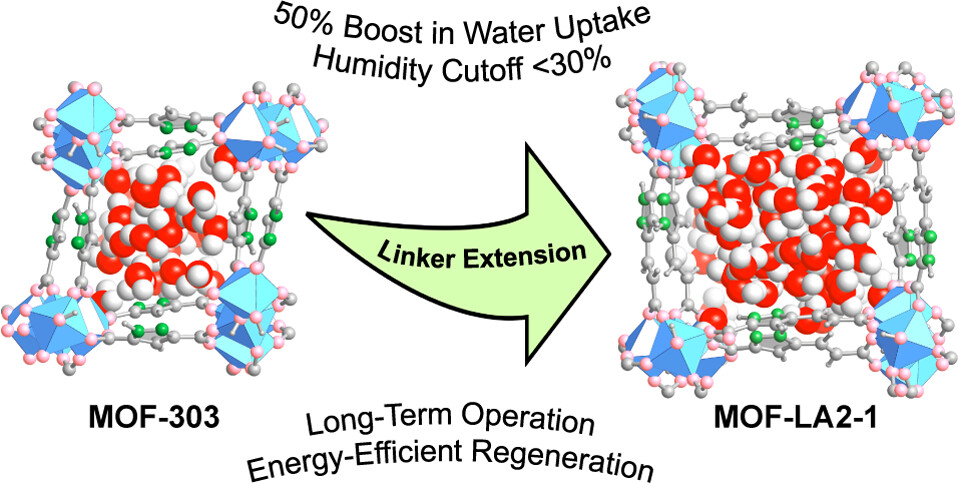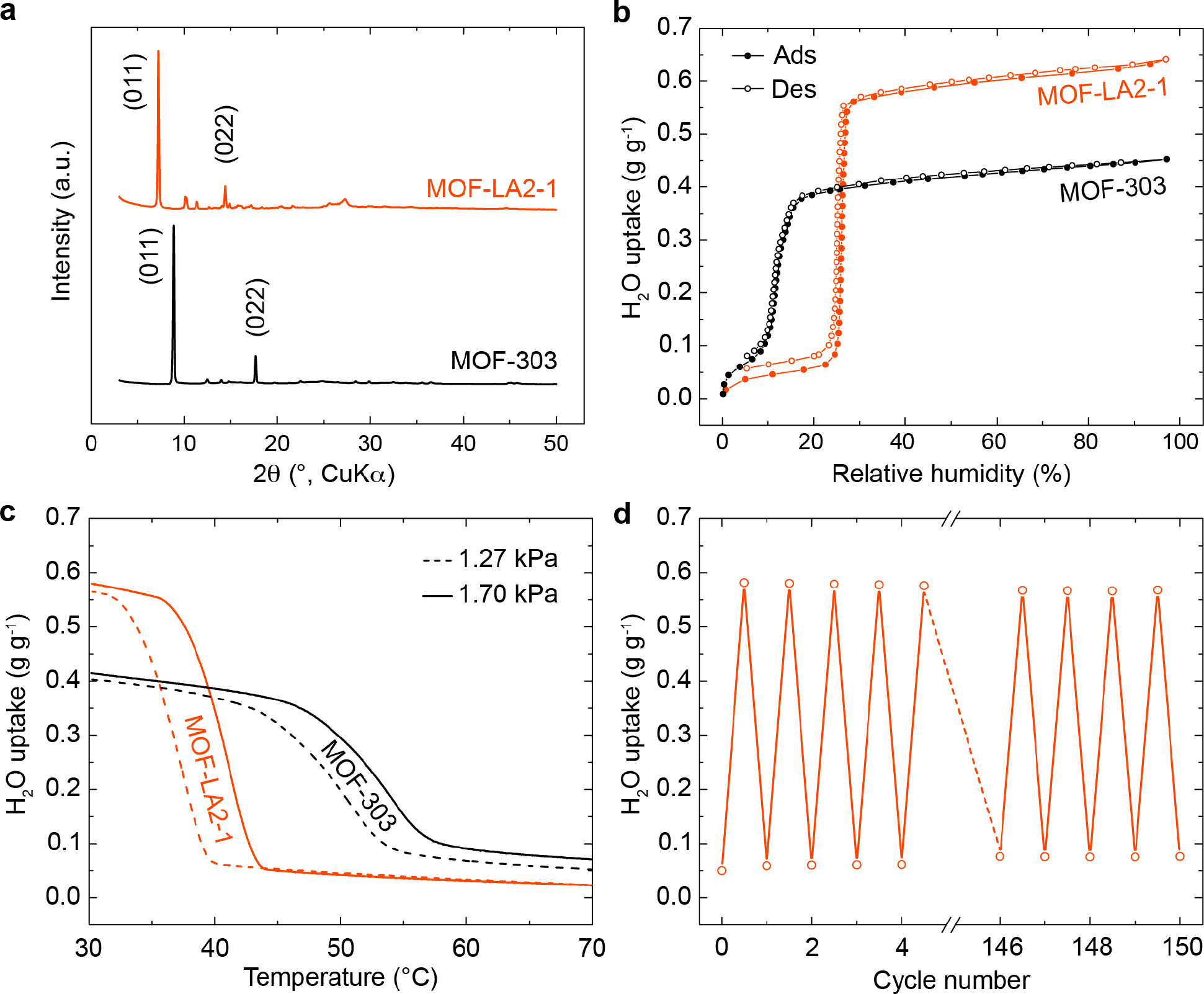Home >
News > MOF Linker Extension Strategy for Enhanced Atmospheric Water Harvesting
MOF Linker Extension Strategy for Enhanced Atmospheric Water Harvesting
Summary:
The authors from UC Berkeley, University of Minnesota, University of Chicago, and Humboldt-Universität zu Berlin developed a vinyl-extended MOF (MOF-LA2-1) with enhanced atmospheric water harvesting performance, achieving ~50% higher water uptake than MOF-303 under arid conditions.

Background:
1. To address global water scarcity, previous researchers developed MOF-303 as a leading atmospheric water harvester, but its water uptake capacity remains limited for extreme arid environments.
2. The authors proposed a linker extension strategy by adding a vinyl group to MOF-303’s linker, retaining hydrophilic pockets while increasing pore volume.
Research Content:
1. Synthesis:
- Solvothermal (DMF/H₂O, 120 °C) and green reflux (H₂O, 2 h) methods using AlCl₃·6H₂O and H₂PZVDC linker.
2. Characterizations:
1) BET surface area: 1,892 m²/g (1.4× MOF-303); pore volume: 0.67 cm³/g (11 Å pores).
2) SEM/EDS confirms phase-pure microcrystalline powder.
3) Water sorption isotherms: 0.64–0.68 g/g at 26% RH; 150-cycle stability (6% loss).
3. Application:
- Tested for atmospheric water harvesting at 1.27–1.70 kPa vapor pressure, enabling 45 °C regeneration (13 °C lower than MOF-303).
4. Mechanism:
- DFT/GEMC simulations reveal ZUS(w)-trans,trans configuration stabilizes water via pyrazole-μ₂-OH H-bonding; vinyl extension increases pore volume without disrupting hydrophilic pockets.

Outlook:
This work demonstrates a simple yet powerful linker extension strategy to boost MOF water uptake while lowering energy demand, offering a scalable route to next-gen arid-zone water harvesters.
MOF Linker Extension Strategy for Enhanced Atmospheric Water Harvesting
Authors: Nikita Hanikel, Daria Kurandina, Saumil Chheda, Zhiling Zheng, Zichao Rong, S. Ephraim Neumann, Joachim Sauer, J. Ilja Siepmann, Laura Gagliardi, Omar M. Yaghi
DOI: 10.1021/acscentsci.3c00018
Link: https://pubs.acs.org/doi/10.1021/acscentsci.3c00018
The above review is for academic progress sharing. For any errors or copyright issues, please contact us for correction or removal.

